Installing an HVAC (heating, ventilation, and air conditioning) system might not be something you can do alone. It requires expertise to ensure the proper installation that is necessary for energy efficiency, performance, and safety. Some local governments might even require you to hire an HVAC contractor to do the installation.
There are a lot of HVAC system installation contractors to help, but how do you choose the best one? In this article, we’ll go over some important factors to consider before hiring an HVAC contractor for your installation.
A competent HVAC installation technician not only guarantees that your system runs effectively but also offers you long-term comfort and safety. By knowing what to look for in an HVAC contractor, you can also make a good decision that will guarantee your HVAC system is properly built and functions efficiently.
Basic Things You Need to Know About HVAC Installation
Before discussing how to choose an HVAC contractor, it’s best to know the basics of HVAC installation first. It will help you understand what’s happening during the project. By learning one thing or two about HVAC installation, you can also oversee the installation process and ensure everything goes smoothly.
The Ideal Time to Do HVAC Installation
In mild climates, replacing an HVAC system may be done at any time of year. However, those who live somewhere with a more extreme climate might want to consider doing it in spring. This will allow the technician to complete the work before the summer heat or winter chill sets in.
Extreme weather may put additional strain on an old, inefficient heating or air conditioning system. Therefore, upgrading to a new, energy-efficient system in the spring will ensure homeowners will be comfortable all year round. They won’t have to worry about system failures or excessive energy bills.
The Proper Size of the New HVAC System
Before you install an HVAC, consider its size and the size of your house. An HVAC unit that is too large or too small for a house can create various issues. They include premature wear and tear, higher energy bills, and decreased lifespan of the HVAC system.
If you’re in doubt about what size of air conditioning system you should choose, a professional installation technician might be able to help you. They will make calculations based on many parameters, such as the size and layout of the home, its construction materials, ductwork, the quality of insulation, and its surrounding area.
HVAC System’s Energy Efficiency
While a more expensive HVAC system may seem like a large investment upfront, it can actually be beneficial in the long run. Usually, the pricier it is, the higher the SEER rating it has. SEER itself stands for Seasonal Energy Efficiency Ratio. This rating specifies how much energy AC units will use for a year.
Where to Place Your HVAC Systems
The placement of your new units can have an impact on the heating or air conditioning system’s efficiency and longevity. Your HVAC should be positioned away from extreme temperatures and direct sunlight.
This is because exposure to heat can cause the device to overheat. Extreme temperatures might also impair the unit’s function and shorten its lifespan.
How to Know If the HVAC Systems Are Installed Properly
Before turning on a brand-new HVAC system, such as an air conditioner, do a final check to ensure that everything is in place. Listen for any unexpected noises that might suggest a problem with the heating or cooling system. Alternatively, you can call for professional HVAC installation services and delegate everything to professionals.
You should also verify that the ventilation and temperature are consistent throughout the house. Otherwise, it might indicate an issue with the installation or the system.
How to Choose the Right HVAC Contractor
Here are some things you need to consider when choosing an HVAC contractor:
1. Proper Licensing
Proper licensing is one of the first things you should consider when choosing an HVAC contractor. You would want to ensure that the installer is qualified and trained in the necessary skills to complete the job safely and effectively.
A licensed HVAC professional means that they have met the requirements and standards set by their local government. This usually includes passing an exam and completing specific training.
2. Costs
While it may be tempting to go with the cheapest option available to save money, you should think about the long-term costs of your selection. Choosing the most affordable option may compromise the quality of the work. It can lead you to need more frequent repairs and maintenance. Ultimately, you’ll just waste more money.
It’s crucial to weigh the HVAC installation costs against the quality they deliver. Also, be prepared for extra fees you may get charged. Taking the time to read the contract may help you understand what you’re in for.
3. Warranties
When discussing various HVAC systems with your HVAC professional, make sure to ask about the warranties that come with each one. Some manufacturers provide extended warranties, which might be an appealing choice for those who seek a sense of security.
An extended warranty normally covers the heating and cooling system for a longer time than the standard warranty. It may also include part replacement and service coverage.
4. Maintenance
Changing your installed HVAC system’s filter on a regular basis is an essential part of HVAC system maintenance.
HVAC filters are critical for eliminating airborne particles from your home’s air, such as dust, bacteria, and viruses. These filters can become clogged with dirt over time, reducing the performance of your heating and cooling systems and potentially leading to malfunctions.
Professionals recommend changing your HVAC filter at least once every three months. Changing the HVAC filter is also one of the contractor’s tasks that may come as a package with the installation. In addition, a good contractor should provide a wide variety of maintenance services, including regular inspections and component cleaning.
5. Home Evaluation
It’s important that the contractor does a thorough house evaluation. This evaluation will assist the contractor in determining the best HVAC systems for your house based on a number of parameters, including the house’s size, insulation, and ductwork.
6. Reputation
Checking an HVAC company’s reputation is a vital step in finding a trusted and experienced contractor. Visit consumer review websites such as Yelp and Google Reviews to discover what past customers have to say about their experience with the contractor.
7. Honesty
An honest installer will keep you updated on any potential issues that may develop during the installation procedure. They will offer you precise cost estimates for the project and notify you of any unexpected charges. A reliable installer will also emphasize your and your property’s safety and ensure that all work is done correctly.
8. Good Communication
When answering your questions and concerns regarding the installation, your installer should be responsive and straightforward. They should be able to explain complex technical terms in a way that makes you easily understand them.
If you see any red flags, such as unanswered calls or ambiguous responses, it may be a sign to find another installer who can communicate more effectively.
The Bottom Line
Choosing the best HVAC installation contractor may take a lot of effort. However, you’ll be able to find the ideal contractor for you by keeping these things in mind. With a skilled and reliable HVAC expert, you can be confident that your new HVAC system will deliver efficient heating and cooling for years to come.

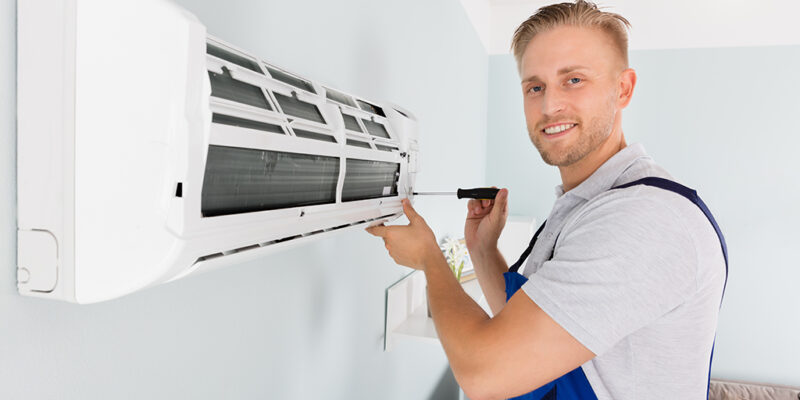

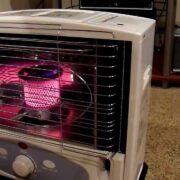
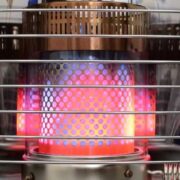



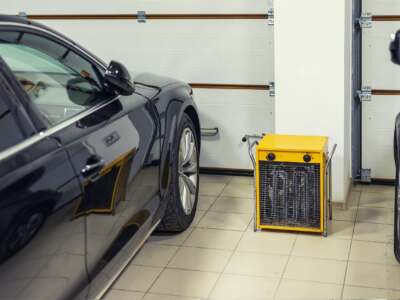
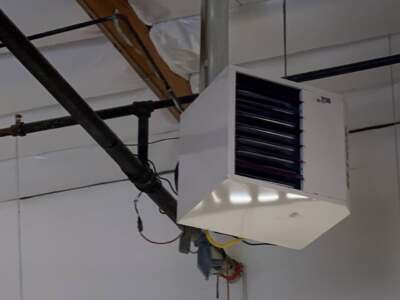
Comments